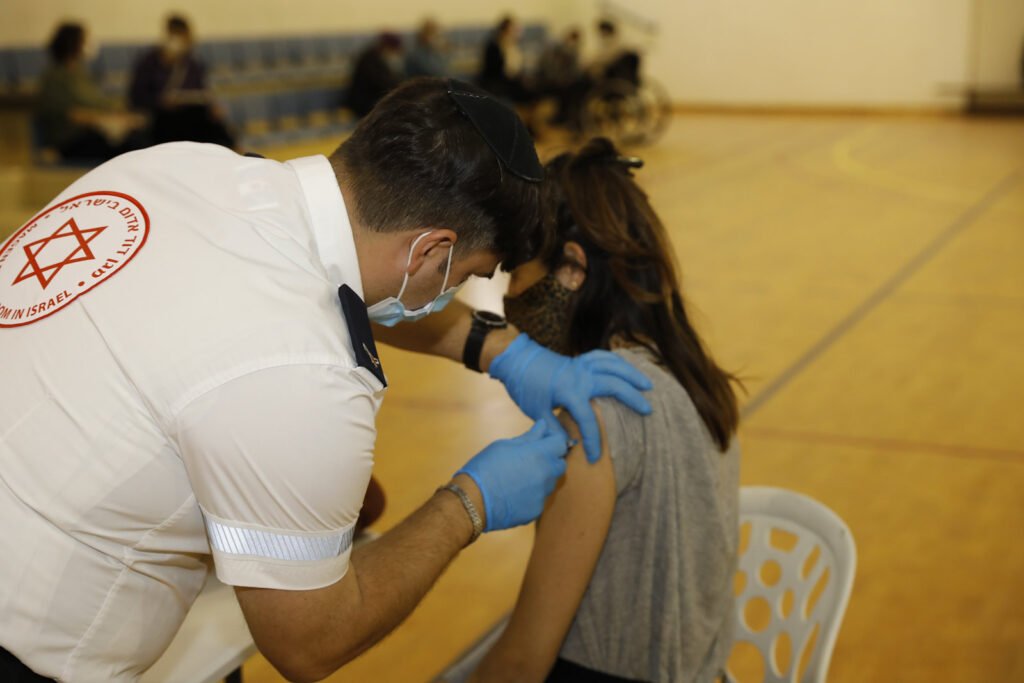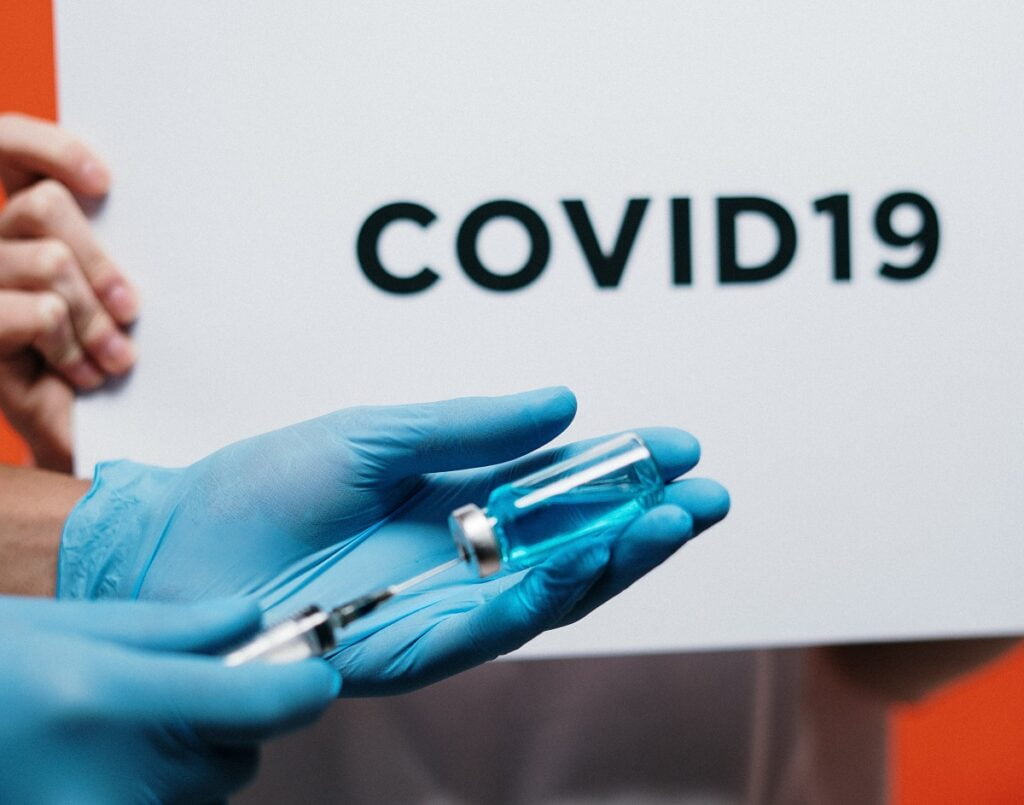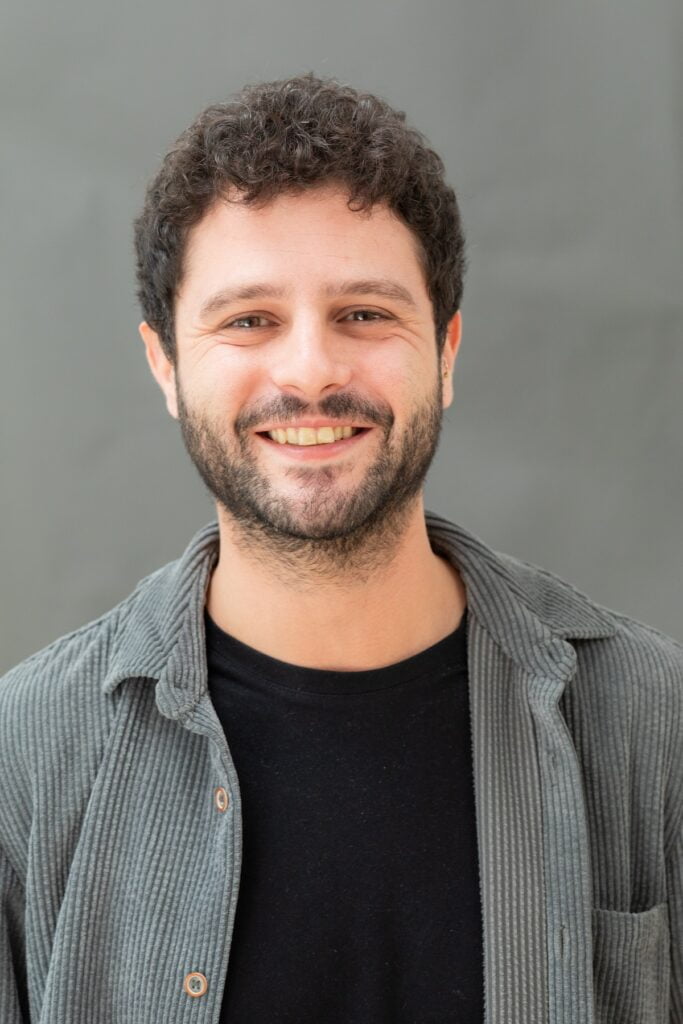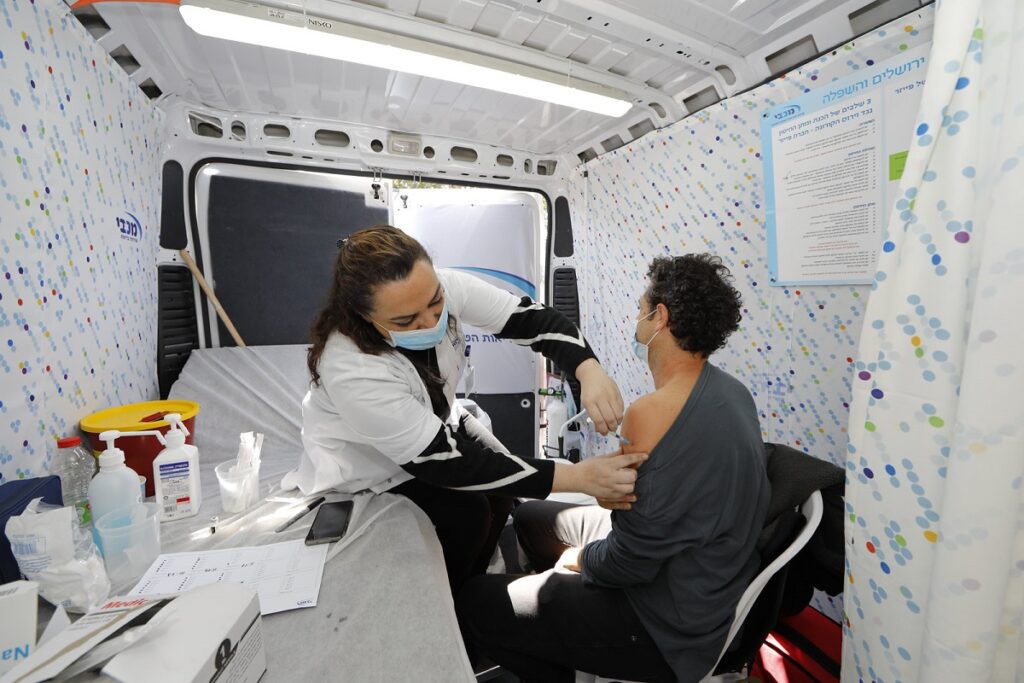This article is a guest post on NoCamels and has been contributed by a third party. NoCamels assumes no responsibility for the content, including facts, visuals, and opinions presented by the author(s).
The writer is the co-founder and head of innovation at Air Doctor, an intuitive and accessible platform to find the right doctor while abroad.
Have we turned the corner on COVID-19? For many countries, the answer is looking more like “yes” with each passing day. Since January, the global vaccination rate has increased exponentially as governments look to inoculate wide swaths of their population and fully reopen their economies.
SEE ALSO: How Israel’s Startup Nation Ethos Propelled Its World-Leading Vaccination Drive
That is really good news. The world is collectively sighing with relief as the vaccines seem to be working, with multiple studies showing the Pfizer/BioNtech jab, specifically, as highly effective. According to recent findings in Israel, the Pfizer COVID-19 vaccine is at least 97 percent effective in preventing symptomatic disease, severe/critical disease, and death, and 94 percent effective in preventing SARS-CoV-2 infections from people who are asymptomatic. This has been a key worry as new research suggests that most coronavirus infections are transmitted through people with no symptoms. The vaccine has also shown promise against known COVID-19 variants.
Israel – an ideal laboratory?
Since late December when the Pfizer/BioNtech vaccine first became available in Israel, the country has consistently maintained the highest vaccination rate in the world (in doses administered per 100 people)
As of March 14, more than five million Israelis have received their first doses and over four million got their second jabs.

Israel is a leader in this space for various reasons. It has a small population of about nine million people, living in a relatively small area. The vaccine rollout has also been supported by an actual army, as well as an army of volunteers led by about 700 medical students.
But two factors stand out. Israel has a digitized medical record system that is highly rated, combined with an insurance system that, although compulsory, still provides some choice in the form of four HMOs. The country’s HMOs have been praised for their efficiency, rolling out the vaccine campaign at top speed.
Israel was also the first country to “repackage” the vaccine, which requires very low temperatures to remain safe, adopting refrigerated shipping techniques that allow vaccinations in remote locations.
As a result, Israel has vaccinated some 50 percent of the population over 30 years of age.
(An Israeli-developed vaccine, BriLife, is expected to enter the third phase of a clinical trial with over 30,000 volunteers in the coming months.)
An international vaccine strategy
Another country that has emerged as a vaccination leader has been the United Arab Emirates (UAE), with a rate of about 65 doses per 100 people. The UAE has a similar population size to Israel’s, but it took a different approach. It has been looking to develop as a regional power – one of the many reasons that drove it to sign a peace accord with Israel last year – so it made sure early on to take an important role in vaccine distribution.
Whereas many Western countries were reluctant to use the vaccines developed by China, the UAE worked closely with Beijing to observe their development process. By September, the UAE was inoculating essential workers with China’s Sinopharm vaccination. (The UAE is also using the Pfizer-BioNTech vaccine as well as Russia’s Sputnik V and the Oxford-AstraZeneca, which has run into some issues.)

Photo by cottonbro from Pexels
Sign up for our free weekly newsletter
SubscribeThe UAE is now beginning to act as a logistical center for vaccine distribution. It has ordered massive amounts of vaccine doses in order to supply countries in the Middle East and Africa. It also initiated the “Hope Consortium”, an organization for handling the difficult storage and shipping needs of the vaccine as it is distributed internationally.
Furthermore, the UAE is building a manufacturing center and will be the first nation in the Middle East to produce vaccines through licensing with Sinopharm.
A national focus
In third place is the UK, with a vaccination rate of nearly 40 percent.
In many ways, the UK has followed a plan that is the opposite of the UAE. Whereas the UAE is playing a regional role in vaccine distribution, the UK has focused on developing a vaccine using national resources. This allowed the country to buy enough supply early on to make sure that its relatively large population has enough jabs.
In fact, the UK saw that being self-sufficient in vaccine manufacturing was essential years ago, as a result of Brexit.
In 2018, it established the Vaccines Manufacturing and Innovation Centre and although the organization was not fully prepared for COVID 19, it had already developed essential expertise which was used to evaluate numerous vaccine candidates. As a result, the UK was the first country to approve the Pfizer/BioNtech solution. It also had an agreement with AstraZeneca three months before the EU did.
The UK’s knowledge of vaccines was also important in building low-temperature storage and shipping facilities, which it did throughout 2020.
The culture factor

It’s fascinating to look at how the top three vaccination leaders each chose a different route to success that was influenced by cultural factors. After Brexit, the UK wanted to show its independence; the UAE wanted to be a modernizing leader in the Arab world; and Israel wanted to continue being an innovation superpower. (As a side note, Israel announced plans to build vaccine production plants and act as “an international center in the fight against coronavirus.”)
SEE ALSO: Israeli Startup That Connects Travelers With Local Doctors Gears Up For A Post-Corona World
With vaccination efforts ramping up across the world, it will be interesting to see how other nations perform. We should keep an eye on India, for example, with its massive manufacturing capability, and on “COVIX Countries” which are depending on the rest of the world for vaccine supply.
France also claims that it will inoculate its entire population by the summer, even though the current vaccination rate is about four percent.
Thinking ahead, and frustrated by EU delays, Austria and Denmark recently announced an alliance with Israel for second-generation vaccine development against variants.
Perhaps we’ll soon see an international strategy?







Facebook comments